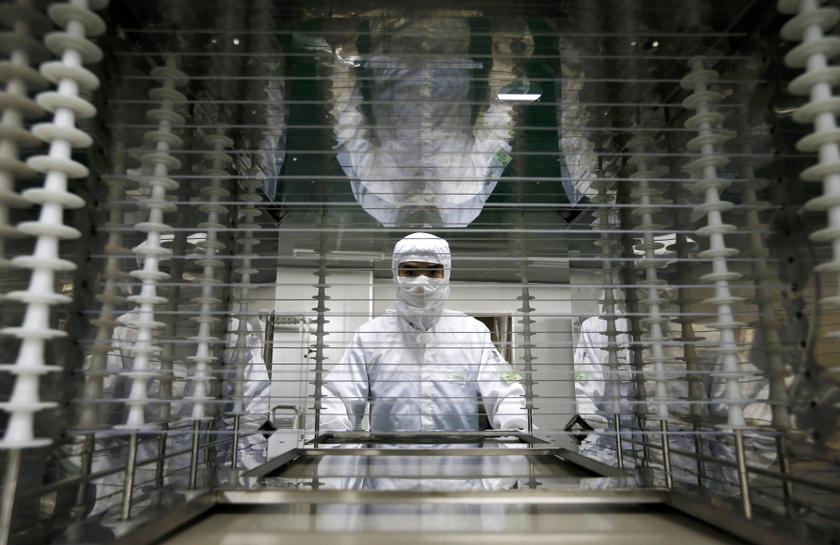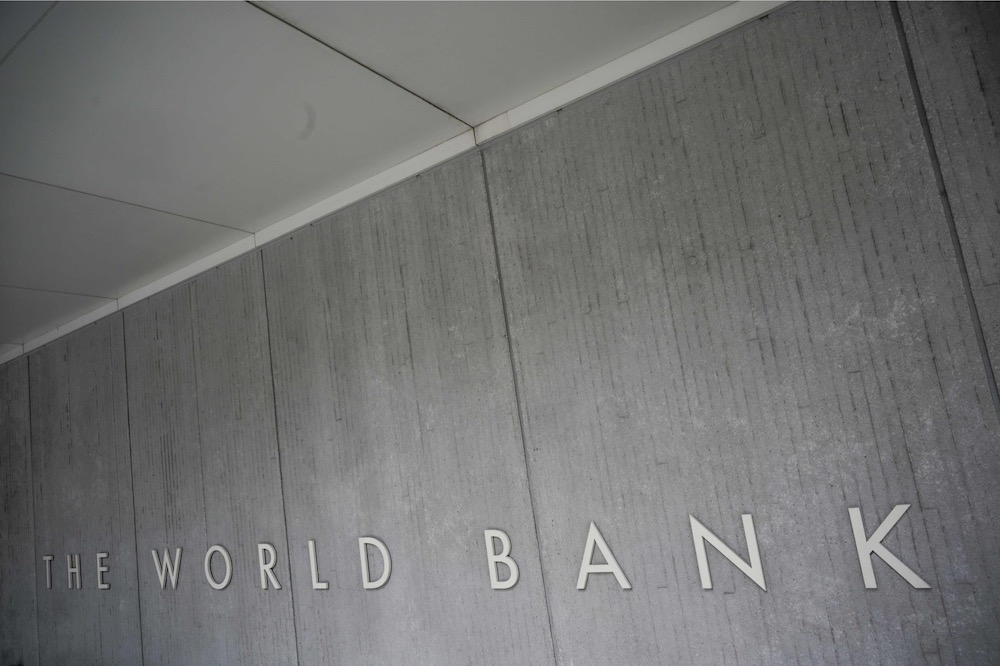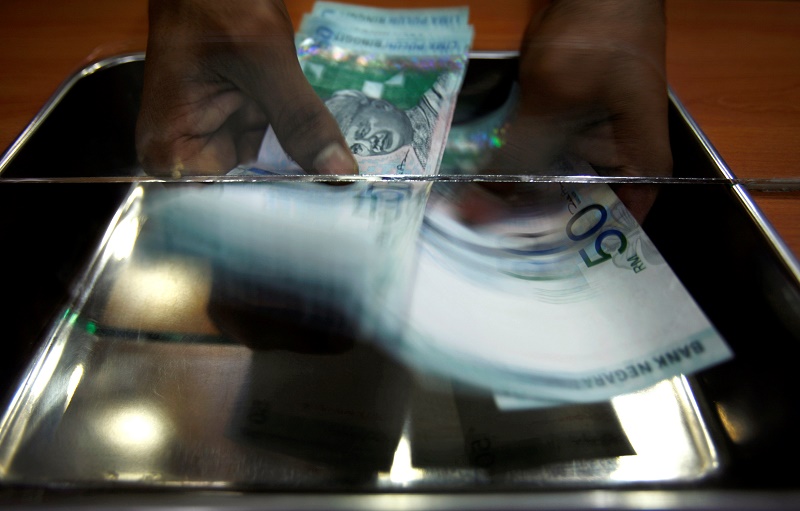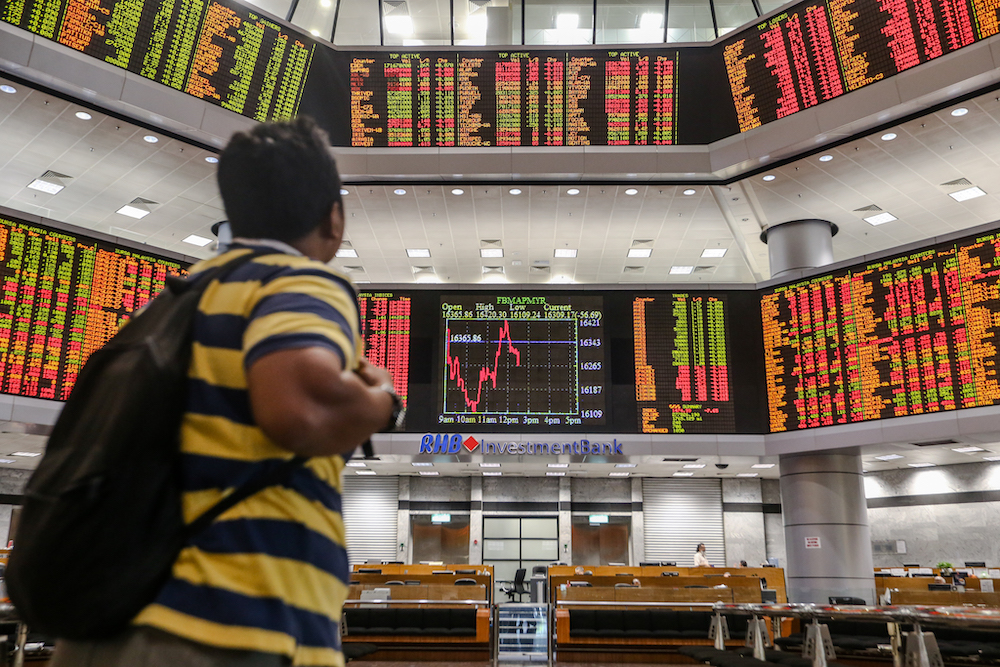
NEW YORK, Oct 31 — When the temperature dipped near freezing in Columbus, Ohio in mid-October, the children had no heat. The gas had been shut off in their apartment for nonpayment. DaMir Coleman, 8, and his brother, KyMir, 4, warmed themselves in front of the electric oven.
The power, too, was set to be disconnected. Soon there might be no oven, no lights and no internet for online schooling. The boys’ mother, Shanell McGee, already had her cell phone switched off and feared she could soon face eviction from their US$840-a-month (RM3,488-a-month) apartment. The rundown unit consumes nearly half her wages from her job as a medical assistant at a clinic, where she works full-time but gets no health benefits.
Just 14 miles northwest of McGee’s neighbourhood, Kiki Kullman is having one of the best years of her life.
The real-estate business she runs with her family just sold the highest-priced house in its history: a 13,000-square-foot estate, listed for US$4.5 million, that came with an elevator and a classic-car showroom. And in late October, Kullman closed on a home of her own — a US$645,000 three-story Colonial, painted a stately white with a front door flanked by columns, a pleasant place for her two-year-old twin boys to grow up.
Columbus exemplifies the economic split animating America’s coronavirus crisis.
Professionals like Kullman are thriving, thanks in part to pandemic-induced policies by the Federal Reserve that have buoyed the stock market and fuelled industries such as real estate with record-low interest rates.
For many lower-wage workers, meanwhile, the crisis has delivered a cruel shove, toppling families like the McGees who were already living on the financial edge. Nationwide, millions of people including hotel workers, retail clerks, waiters, bartenders, airline employees and other service workers have lost jobs as Covid-19 fears crushed consumer demand.
Economists call this phenomenon a “K-shaped” recovery, in which those on the top continue to climb upward while those on the bottom see their prospects worsen.
Ned Hill, professor of economic development at Ohio State University, called that downward slope of the K “fat and broad and long and ugly looking.” He said there’s little hope for a return to normal as long as coronavirus continues to spread unabated in the United States. In Ohio, Covid-19 cases are soaring and hit a record of 3,590 new cases on October 29. In Columbus alone, at least 643 people have died.
“People’s jobs and incomes have disappeared, and they aren’t coming back until people’s threat of dying from the virus dissipates,” Hill said. “That’s it.”
Located in the centre of Ohio, about halfway between Pittsburgh and Indianapolis, Columbus is a city of some 900,000 people. Home to Ohio State University and the state’s capital, its employment is rooted in sectors like hospitality, education and health, government, and professional and business services.
That mix has allowed it to fare better during the crisis than some other Rust Belt cities that are more heavily dependent on manufacturing. Columbus’s September unemployment rate of 7.5 per cent was lower than the national average of 7.9 per cent. But like the rest of the United States, its front-line and modestly skilled workers have been slammed the hardest.
The divergence of fortune can be seen in the city’s housing market.
For those with means, like the clients of real estate agent Kullman, low interest rates have translated into cheaper mortgages, allowing them to afford bigger houses. Columbus is just one of four US cities — along with Cincinnati, Kansas City and Indianapolis — where houses are selling in less than five days on average, according to real estate research firm Zillow.
“It is crazy to see in Columbus the million-plus price point getting multiple offers and all-cash bids,” said Kullman, 36.
For renters hammered by the downturn, meanwhile, housing is a precarious business.
During the early days of the pandemic as Ohio’s residents sheltered in place, evictions in Columbus fell, thanks to local and federal protections to keep renters in their homes. But since September, 1,774 eviction cases have been filed, far surpassing summer levels, according to Princeton University’s Eviction Lab, which tracks evictions. The Greater Columbus Convention Center now serves as a bustling eviction court.
Those filings came despite a September 4 decree by the US Centers for Disease Control and Prevention (CDC) banning all evictions nationwide until January 1 to prevent a surge of newly homeless people from contracting and spreading the coronavirus. Under the moratorium, landlords cannot evict tenants who can no longer pay rent because their earnings have been affected by Covid-19.
But landlords are not required to inform tenants of these protections and are free to file eviction lawsuits. Only renters who know about the CDC ban, qualify for it and take legal action to assert their rights can stop their evictions. Among the 24 cities the Eviction Lab tracks, Columbus is one of the few where evictions did not fall after the ban.
The fallout can be seen across Columbus. The local pot of money from federal relief to help cash-strapped tenants pay rent was tapped out in September. Food banks are running low on staples, and homeless shelters are at capacity, according to community advocates.
Utility shut-offs have surged to the point that lawyers for the Legal Aid Society of Columbus have resorted to filing personal bankruptcy petitions for tenants to keep their heat, lights and water on.
If present conditions persist, and without a new round of federal relief, as many as 40 million people could be at risk of eviction in coming months, according to the Aspen Institute, a think tank. In a typical year, 3.6 million eviction cases are filed.
‘Being poor costs you’
Even before the pandemic, McGee, 29, was struggling financially. In 2014, she bought a 2008 Chevy Malibu off a corner lot charging 22 per cent interest. She said the junker stopped running long ago, so she stopped paying in 2016. McGee said she offered to return the vehicle, which has 176,475 miles on it, but the lender wouldn’t take it back.
In March, McGee’s live-in boyfriend lost his job at a fast-food restaurant as Ohio went on lockdown, cutting their household’s income. In August, he was diagnosed with Covid-19 and the entire family had to quarantine. That same week, McGee got a call from her employer, telling her that her lender had gotten a court order to garnish 25 per cent of her wages to repay more than US$10,000, with penalties and late fees, that she still owed on the car.
That left her with take-home pay of US$728 every two weeks. She couldn’t afford school supplies for her sons and had to borrow gas money from her mom to get to work in her boyfriend’s car.
“It was heartbreaking, it was everything all at once,” said McGee, who wears rectangular glasses and has a broad, easy smile.
She sought help from Paul Bryson, an attorney with the Legal Aid Society who filed a bankruptcy petition in October to get McGee’s utilities turned back on and the garnishment frozen. The court approved the petition, but not before McGee’s lender took US$1,023 of her wages.
“Being poor costs you a lot of money,” Bryson said. “Even before the pandemic, somebody’s entire life falls apart when they get a garnishment. And now? If nothing is done, we are just going to have a lot of people on the street.”
McGee’s car lender, Columbus Mortgage, did not respond to requests for comment.
Living the dream
For years, Kullman, the real estate agent, fantasised about living on Bedford Road, a coveted address in the Columbus suburbs.
In the region’s poshest neighbourhoods, sumptuous houses that make perfect pandemic compounds, with amenities like his-and-hers home offices and roomy basements for online schooling, can sell in a day, often with multiple offers in all-cash deals well above the asking price. Kullman said some shoppers are submitting bids without ever touring a house. The most desperate are agreeing to “no-remedy” inspections, meaning they won’t ask for concessions if the inspection turns up a major defect. Others, she said, have authorised “crazy escalation clauses with no cap.” In real estate parlance, that means they will beat any other offer, no matter how high the price.
“You have to sign away your life to get the house you want,” Kullman said.
In August, Kullman, who runs the Kullman Group at Street Sotheby’s International with her husband, father and sister, found out that a couple who lived on Bedford Road were about to move. She made a bid before the house hit the market and the owners accepted. The Colonial is right next door to her sister’s home; their kids will share backyards.
Kullman is aware of her good fortune amidst the pandemic, and the mean hand that coronavirus has dealt to the city’s most vulnerable.
Her husband has been doing business with a landlord who’s selling a portfolio of homes in Columbus’s low-income neighbourhood of Linden. Non-paying tenants in those properties have been getting eviction notices.
“It is night and day, what we see here,” Kullman said. “Which is not what you would expect in Covid. It’s sad but it’s true.” — Reuters
Source: Malay Mail
.jpg)
















.jpg)









